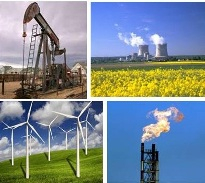
Practical information
New perspectives are opening in Central and Eastern Europe. The region needs to assert a new geopolitical dimension, while reducing its energy dependency. What choices will these countries have to make to adapt their energy policies, and consolidate their role in the Energy Union?
The Energy Union communication reasserts the role of Central and Eastern European countries in EU energy policy. Through the Energy Community, this region has become key to the objective of enforcing the third energy package rules, while refocusing EU energy policy on security of supply.
In addition to the uncertainty related to large gas pipeline projects and contrasted electricity interconnections, the Central and Eastern European region needs to consolidate a new geopolitical role and reduce its external energy import dependency. What choices will the region have to make? To what extent existing regulatory frameworks in the different countries need to be adapted?
Speakers
Mantas Bartuška, CEO and General Manager, Klaipėdos nafta, Lithuania
Dirk Buschle, Deputy Director, Energy Community Secretariat
Bogdan Janicki, Senior Advisor to the CEO, Central Europe Energy Partners
Hans Van Steen, Head of Unit, International Relations and Enlargement, DG Energy, European Commission
Chaired by
Marie-Claire Aoun, Director, Center for Energy, Ifri
Other events

Paris Naval Conference 2026: Naval Rearmament and Operations in Contested Waters
This fourth edition of the Paris Naval Conference (CNP), bringing together high-level military, industrial, and academic speakers, will address the challenges associated with general naval rearmament and naval operations in increasingly contested environments.





